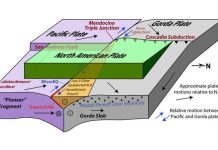Daniela Jacob, Director of Institute Climate Service Center Germany (GERICS), explains how the Climate Services journal brings us the latest details about science for practice
The international journal Climate Services is dedicated to making scientific findings in the field of climate services widely accessible for both scientists and practitioners. Its focus is on the use and usability of climate information for adaptation purposes underpinning climate services, aiming to support the various decision-makers in society in dealing with and adapting to climate change.
More about the Climate Services journal
In cooperation with the Publisher Elsevier, the Climate Service Center Germany (GERICS) has developed the Climate Services journal since 2016. Before then, no scientific journal in the field of climate services existed. The establishment of the Climate Services journal closed this gap and serves as a platform for exchange between scientists and practitioners. To that end, the journal incorporates new formats, particularly targeting the practice community. All research articles start with a so-called chapter on “practical implications”. This part is a stand-alone chapter providing policy-makers and practitioners with all the relevant information to understand and apply the scientific learnings in practice. The practical implications are collected yearly to allow for easy access, here. The journal is freely accessible (open access) worldwide, to enable scientific results and practice relevant information to be used further in a flexible and free manner.
Relevant topics for Climate Services, among many others, are:
- The use of climate and climate impact modelling to strengthen climate services;
- Climate services about vulnerability, risk assessment and adaptation;
- Sectoral and cross-sectoral case studies for climate services;
- Development of adaptation and mitigation strategies for climate services;
- Or studies to identify and overcome barriers to climate change adaptation.
The best scientists and scientific findings
The Climate Services journal brings the best scientists and scientific findings to the practice community. A group of renowned scientists from different disciplines are members of the Editorial Board and together with the reviewers, they ensure that the articles are nothing but high quality by means of a scientific peer-review process. This is also confirmed by the so-called Impact Factor. Climate Services proudly received an Impact Factor of 5,656 since June 2021.
The value of the Impact Factor provides insight into how often articles from a particular journal are cited in other scientific publications and is further based on a thorough review of the general quality of the journal, including its aim and scope, subject of relevance, the Editorial Board, ethics policies, among others. This measure is commonly used to assess the performance of a scientific journal.
A constantly evolving journal
The Climate Services journal is constantly evolving. One recent example is a new article type: the case study. It documents context-specific climate services experiences that aim to meet an identified need, in contrast to investigator-driven research that is typically presenting novel research findings. The case study articles present a real-world example of the development, potential applicability or implementation of a climate service or an application of an already existing method in a particular context. The article provides key lessons learned (positive and negative) and explores the potential transferability to other contexts, as well as considering the specifics of the stakeholder engagement approach.
To be up-to-date with the latest science and to find ways to incorporate the climate service science into your practice communities, we warmly welcome you to explore the open access findings published in the Climate Service journal.
Juliane Petersen
Gaby S. Langendijk
Daniela Jacob
More information at:
https://www.journals.elsevier.com/climate-services
Please note: This is a commercial profile
© 2019. This work is licensed under CC-BY-NC-ND.











